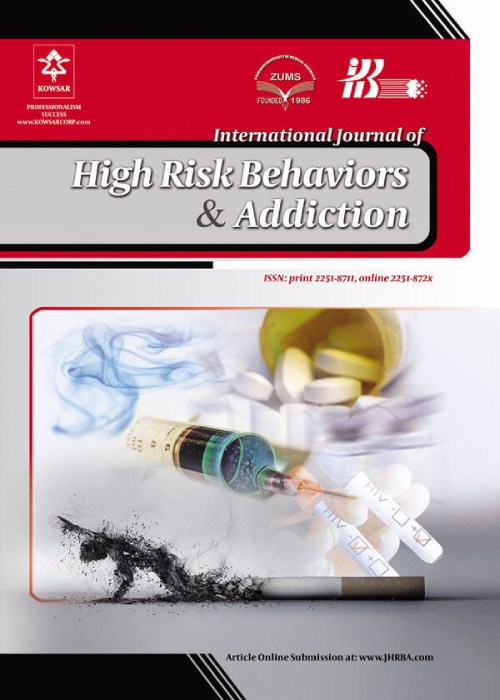The Mediating Role of Anxiety in the Relationship Between Mothers’ Cognitive Avoidance and Adolescents’ Digital Game Addiction
Adolescents are vulnerable to addictive behaviors such as digital game addiction, and mothers’ cognitive avoidance can play a key role in initiating and intensifying these behaviors.
The present research tends to review the mediating role of anxiety in the relationship between mothers' cognitive avoidance and adolescents' digital addiction.
The current research was a correlational-descriptive study. The sample consisted of 199 high school students in the city of Zahedan, along with their mothers between 2020 and 2021, who were selected by a convenience sampling method. Students answered the Digital Addiction Scale for Children (DASC) and the youth anxiety measure for DSM-5 (YAM-5), and their mothers answered the Sexton and Dagas Cognitive Avoidance Questionnaire (CAQ). Data were analyzed using Pearson's correlation coefficient test and path analysis in SPSS and AMOS-24 software.
The results of Pearson's correlation test indicated that adolescents’ digital game addiction had a significant positive relationship with the dimensions of mothers' cognitive avoidance and adolescent anxiety (P < 0.001). The results of the path analysis test indicated the positive and significant direct effects of mothers’ cognitive avoidance dimensions, including suppression (P < 0.05, β = 0.19), substitution (P < 0.001, β = 0.29), and avoidance (P < 0.05, β = 0.20), on adolescent anxiety, and the positive and significant indirect effects of suppression (β = 0.04), substitution (β = 0.06), and mothers’ cognitive avoidance (β = 0.04) on digital game addiction. Also, the findings indicated that the direct effects of adolescent anxiety (P < 0.01, β = 0.22) and mothers’ cognitive return attention (P < 0.001, β = 0.34) on children's digital game addiction were positive and significant. In addition, mothers' cognitive avoidance and adolescent anxiety explained 24% of the variance of digital game addiction in adolescents.
The findings of the present study are consistent with the hypothesis of the importance of family factors in adolescents’ digital game addiction. Conducting such research can provide important practical approaches concerning prevention and intervention by providing essential information on the role of individual and family factors in the occurrence of digital addiction.
- حق عضویت دریافتی صرف حمایت از نشریات عضو و نگهداری، تکمیل و توسعه مگیران میشود.
- پرداخت حق اشتراک و دانلود مقالات اجازه بازنشر آن در سایر رسانههای چاپی و دیجیتال را به کاربر نمیدهد.


